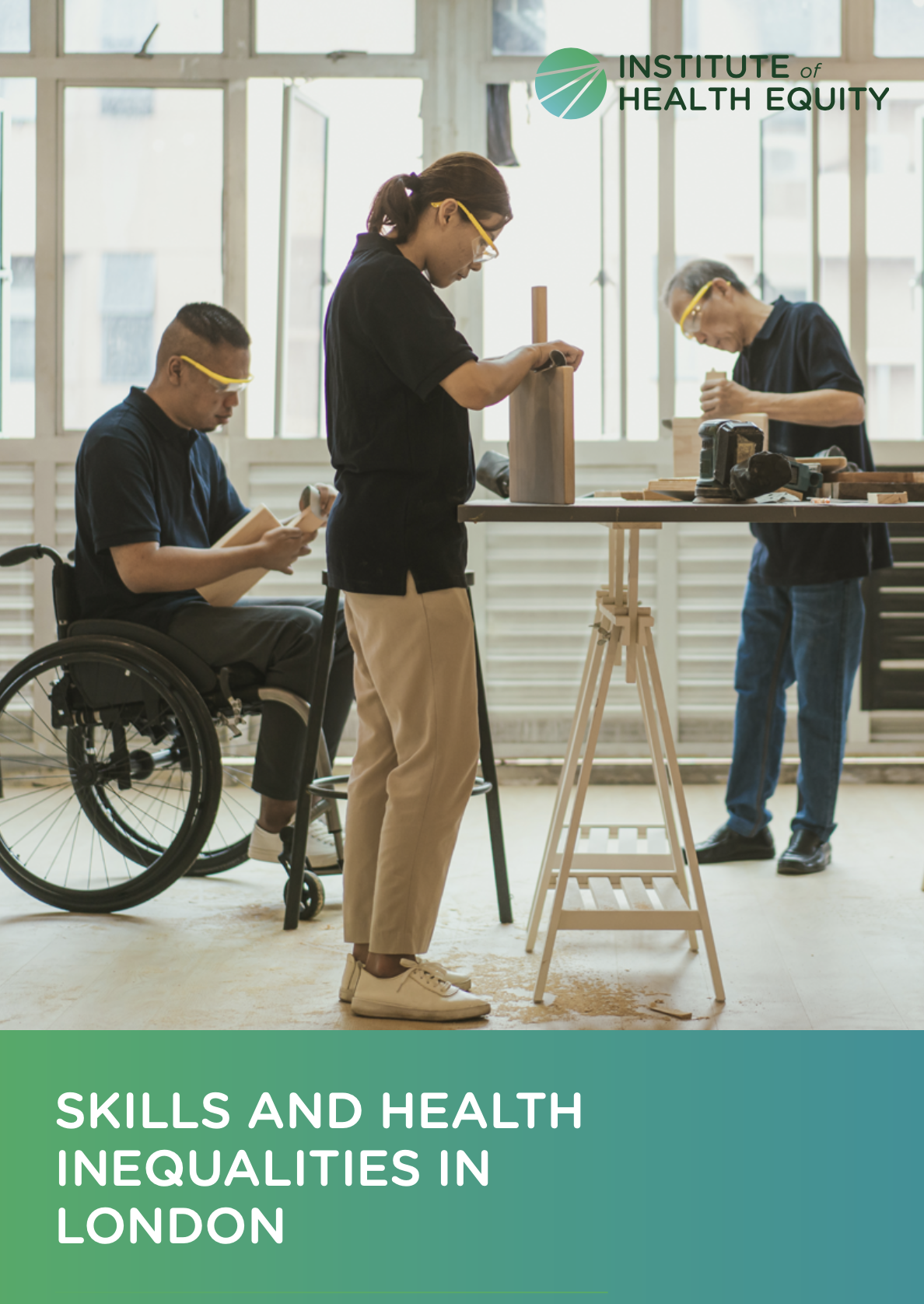The accompanying Data Companion Pack presents additional information about inequalities in skills and skills programmes in London and should be read in conjunction with the review of interventions.
Click here to view the slides: https://www.instituteofhealthequity.org/resources-reports/evidence-review-cost-of-living-and-health-inequalities-in-london/click-here-to-view-the-slides.pdf

Skills and Health Inequalities in London
Summary
Adult learning and skills development is the focus of the third in a series of rapid reviews of evidence for interventions that can be made by local authorities, the Greater London Authority and system partners in London to reduce health inequalities. The report presents evidence for interventions and programmes that can support Londoners to build skills and participate in skills programmes.
The review ‘Skills and Health Inequalities in London’ sets out how the development of skills in adulthood makes an important contribution to improving health and reducing health inequalities. To be effective for health equity, skills programmes need to be widely accessible to communities who are living in deprivation, experiencing exclusion and discrimination, loneliness and isolation, have caring responsibilities, low levels of skills including English language, or poor mental or physical health, and whose quality of life and confidence can be improved by participating in skills building programmes.
London has extensive skills programmes which contribute to reducing inequalities in key social determinants of health and health itself. There have been recent improvements which have made skills programmes more accessible and equitable, including offering free courses for a widening group of low income and excluded Londoners. Despite these positive outcomes, there is still much to do to strengthen skills programme design and delivery in the capital.
This review is intended to support effective action to reduce inequalities in skills and makes the case that programmes and funding that support skills development among those who most need it is an important contribution to reducing inequalities in health and in the social determinants of health, and also brings economic benefits to deprived areas and communities.
The Review makes recommendations for action to reduce inequalities in accessing skills programmes covering:
1. Targetting underserved populations
2. Tackling barriers to participating in skills programmes
3. Strengthening the role of public health and partnerships with employers in skills programmes
Specific recommendations are also made for the GLA, the public health system in London, Local Authorities, the community and voluntary sector and employers.
